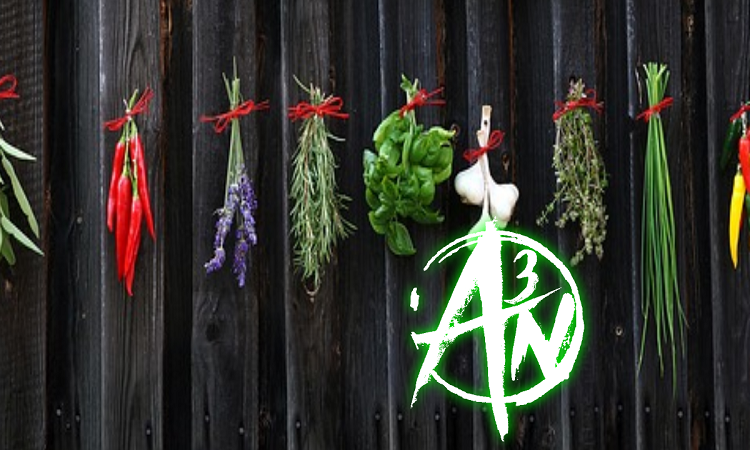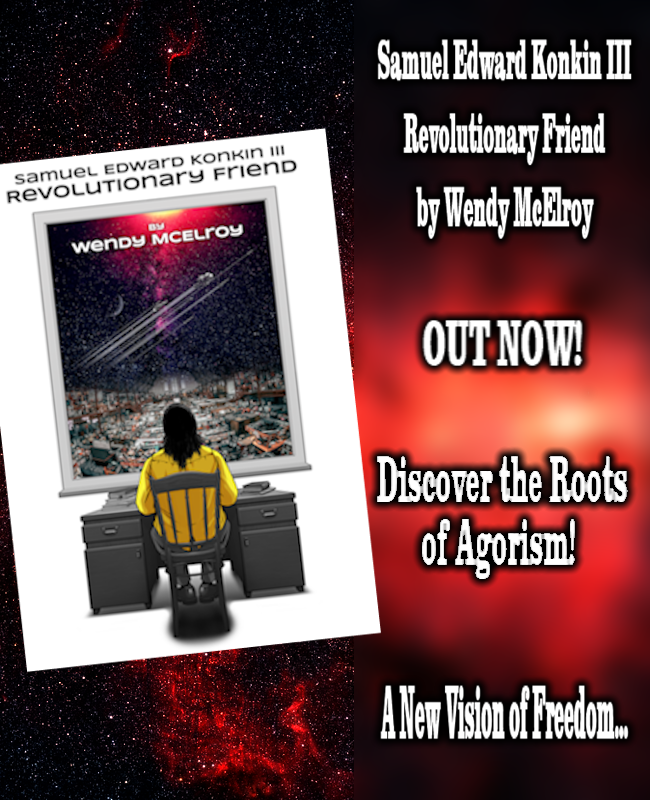
Herbal Agorism
We all have unique stories of how we got to where we are in our journey to liberty. Maybe agorism is new to you and you’re wondering how to practice it in your day-to-day routine. For me, libertarianism saved my life. I know that sounds dramatic, but I was a very sick and suffering addict for almost half my life. I was taught that I had a disease which allowed me to play the victim. I was so lost and hopeless that I thought I would be better off dead.
Not long after a suicide attempt, I was introduced to libertarianism. I learned about having principles and personal responsibility, and that nobody was coming to save me. Little did I know that these principles would lay the groundwork for my road to recovery. Of course, it wasn’t long before I realized that being a libertarian wasn’t enough. Anarchy was the natural next step.
Fast forward to 2020. I had heard of agorism, but with all the chaos due to the “pandemic” it was becoming increasingly clear that I needed a plan for the future. My husband and I live on a homestead so we practice agorism daily, but I still have one of those pesky day jobs that I would someday like to be free of! What if my employer decides to require vaccination to continue to work there? Or, if I will need vaccination papers to renew my permission slip to drive on the roads?
The future is full of uncertainty, but it’s never too late to prepare. I ordered a book on herbal medicine making per a suggestion by Jack Spirko on The Survival Podcast. It is called The Herbal Medicine Maker’s Handbook, by James Green. I fell in love! I have always been very fond of plants and gardening, and how much more agorist can you get? By taking my health into my own hands, I am greatly reducing my dependency on Big Pharma, the FDA, unreliable medical diagnosis, and the healthcare system in general.
Now, you might be thinking that herbalism is a little too hippy-dippy for me. Or that, maybe you have tried an herbal remedy before without great results and decided that they couldn’t possibly help. Well, I have some good news. Similar to how food you buy in a supermarket doesn’t compare to food you buy locally, herbs are the same way. The first step in using our amazing herbal allies is to obtain QUALITY herbs. Mass produced commercial herbs are of very low quality, and over harvesting certain ones like Goldenseal and Ginseng is a real concern. Dried herbs lose their potency over time unless they are preserved, in alcohol for example. When using commercially grown herbs, that were likely not properly dried in the first place, it’s no wonder we quickly dismiss them and reach for the maximum strength prescription medicine.
I am fortunate enough to have the land and means to grow herbs myself, which is exactly what I did. If your space is limited in your situation, the good news is that there are so many herbs that are perfectly happy in a sunny windowsill or out on the porch. Even if you don’t have the greenest thumb, I was surprised to learn how large the herbal community is worldwide. There are plenty of reputable sources on the internet to satisfy all your herbal needs. In fact, it can seem a little overwhelming at first. I often hear other “newbies” asking where to begin. The advice given to me was to start with areas in my life that need attention. For me, I started with my mental health. Besides addiction, I struggled with depression and anxiety. I have been on and off prescribed medication for years. I couldn’t believe how many of our herbal allies help with this, such as ashwaganda, skullcap, lemon balm and St. John’s Wort. Find yourself a local herbalist or naturopathic healer and they can point you in the right direction.
Maybe you want to take it a step further. Self-medication has developed a stigma these days as being irresponsible and dangerous. However, humans have been self-medicating with herbs and plants since the beginning of time. That being said, you MUST DO YOUR RESEARCH! Some herbs will still have interactions with other medications. For example, St. John’s wort could interact with prescribed psychotropic drugs. Some plants are toxic when ingested, but very effective when used topically, such as foxglove. I will point out that doing your research on anything you put in your body is good practice. Even for prescribed medication.
One helpful tool that you can use is a plant identification app. I have found the app Picture This to be very helpful and comfortably accurate, but there are many options out there. This comes in handy when foraging for herbs. You’ll be surprised by how many wonderful medicinal plants are in your own backyard! There are many beneficial plants that society has labeled as undesirable weeds such as dandelions, plantain, purslane, clover, stinging nettle, and so many more! I’ll note again, DO YOUR RESEARCH. There are many plants with an evil doppelganger. If foraging for your herbs interests you, be mindful of where you find them and the size and health of the stand. You don’t want to use plants from the side of the road where they could be contaminated, or from a dog park, etc.. You also don’t want to pick unhealthy looking plants or all that are available in one spot. Leave some there so they can spread, reproduce, and thrive for future harvesting.
Another cool thing about using herbal medicine is that there are numerous ways to include it into your life style. I discovered how lovely herbal tea is when I was looking for a healthier replacement for sugary soda. There are plenty of very bitter herbs though. If you like bitter, drink up! If not, tincturing is a great option. A tincture is the use of alcohol as a solvent to draw out the medicinal properties of an herb. The advantage of using a tincture is that you only need to consume a small amount to get the medicinal benefit. For people that do not tolerate alcohol, vinegar or glycerin can also be used to make an extract. Another advantage of using a tincture is the incredible shelf life. If properly stored out of direct sunlight, a tincture’s efficacy could last a lifetime. Capsules are also an option, especially for the most offensive tasting herbs. I have heard that this is the case for Saw Palmetto. You can also infuse herbs into oils such as olive oil for example. Cannabis is a popular herb to prepare this way because herb infused oils can then be turned into medicated balms and salves. Calendula is another great herb used for healthy skin.
So what are you waiting for? With the growing pressure for socialized healthcare, what could be more empowering than reclaiming your health and vitality with herbal medicine? For me, libertarianism may have saved my life, but my quest for freer life through agorism has given me my purpose back. I wish you luck and happiness on your own journey to liberty through agorism.








1 comment
Herbal Agorism – FreedomFiend
March 20, 2021[…] Source […]